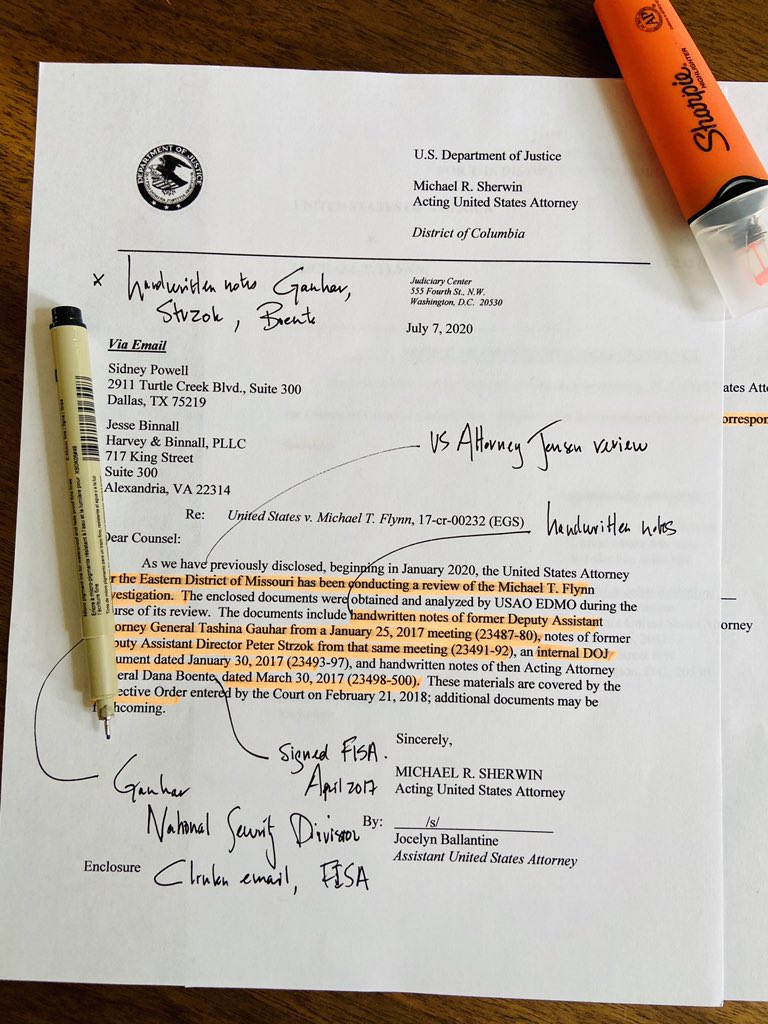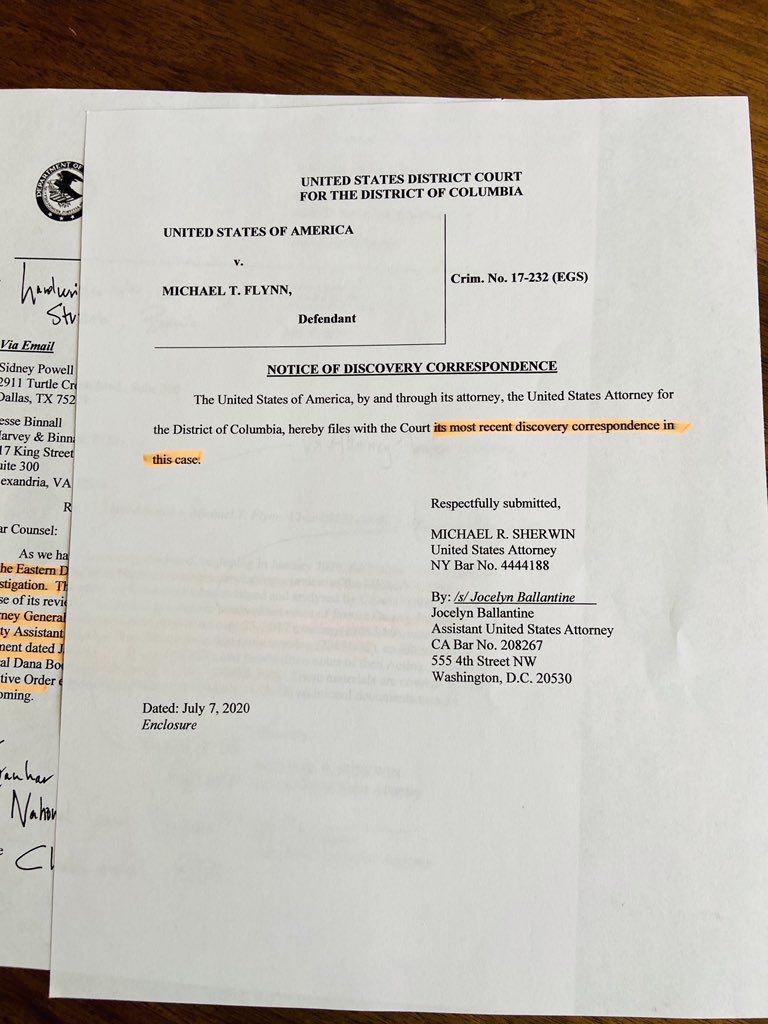The Brennan Dossier: All About a Prime Mover of Russiagate
By
Aaron Maté, RealClearInvestigations
November 15, 2019
Continued.....
Nunes: 'Whatever Brennan Told Reid, He Didn’t Tell Me.'
The separate briefings and the Reid letters gave rise to suspicion that Brennan was driven by what Reid, according to Isikoff and Corn, saw as an "ulterior motive." Although Brennan has claimed publicly that he "provided the same briefing to each gang of eight member," Rep. Devin Nunes (R-Calif.) says that is not true. Nunes, who was then the chairman of the House Intelligence Committee, is quoted in journalist Lee Smith’s new book, "The Plot Against the President," saying, "Whatever Brennan told Reid, he didn’t tell me."
Reid’s letters also undermine a common, but false, talking point used to defend Brennan and other U.S. intelligence officials behind the Russia investigation: If they really sought to hurt the Trump campaign, they would have made their Trump-Russia collusion speculation public. As Comey put it: "If we were 'deep state' Clinton loyalists bent on stopping him, why would we keep it secret?" Reid's extraordinary letters – released at the height of the campaign – were one of the ways in which Brennan did exactly the opposite.
FBI's Peter Strzok texted Lisa Page suggesting the CIA was "leaking like mad." And he wrote colleagues of his concern the agency was deceiving both the bureau and the public.
AP Photo/Manuel Balce Ceneta
After Trump's election victory in November, Brennan's CIA was the source of yet more leaks. Reports in early December claimed that the agency had assessed that Russia interfered in the 2016 election with the explicit aim of helping Trump. The leaks sparked worry inside the FBI.
"Think our sisters have begun leaking like mad," Peter Strzok, the lead FBI agent on the Russia probe, texted his colleague Lisa Page on Dec. 15. "Scorned and worried and political, they're kicking in to overdrive." In an April 2017 email to colleagues, Strzok worried the CIA was deceiving both the bureau and the public. "I'm beginning to think the agency got info a lot earlier than we thought and hasn't shared it completely with us," he wrote. "Might explain all these weird/seemingly incorrect leads all these media folks have. Would also highlight agency as a source of some of the leaks."
‘We Needed More’
At the same time that he was sharing his "concerns" about alleged Trump-Russia contacts with the FBI and Congress, Brennan was raising alarm bells at the White House about an alleged Russian interference campaign. In the process, he went to significant lengths to safeguard his claims from internal scrutiny.
In early August, Brennan told the White House about supposed intelligence from a Kremlin mole that Vladimir Putin had personally ordered an interference operation to hurt Clinton and install Trump in the White House. Brennan, the New York Times reported, "sent separate intelligence reports, many based on the source’s information, in special sealed envelopes to the Oval Office." Brennan made sure that those envelopes evaded scrutiny.
On Brennan’s orders, Greg Miller of the Washington Post reported, "no information on Russia's interference was ever included in the president's daily brief." Brennan's purported fear was that even a highly restrictive distribution list might prove too leaky for the CIA’s explosive claims about Putin’s supposed secret orders to elect Trump.
Miller also reported that Brennan holed up in his office to pore over the CIA's material, "staying so late that the glow through his office windows remained visible deep into the night." Brennan ordered up, not just vetted, "'finished' assessments – analytic reports that had gone through “layers of review and revision," but also "what agency veterans call the 'raw stuff,' the unprocessed underlying material," Miller adds.
John Kiriakou, ex-CIA analyst: Brennan's actions were "a very big red flag."
AP Photo/Cliff Owen
To former CIA analyst and whistleblower John Kiriakou, all of this raises "a very big red flag" that suggests Brennan circumvented his colleagues and normal intelligence safeguards. "As a matter of practice, you never, ever give the raw data to the policymaker," Kiriakou says. "That was something that was done during the George W. Bush administration where Vice President Cheney demanded the raw intelligence. But more often than not raw intelligence is just simply incorrect – it’s factually incorrect, or it’s the result of the source who’s a liar, or it’s the result of the source who has only part of the story. And so you can’t trust it. You have to vet it and compare it to the rest of your all-source information to see what’s true, what’s not true, and then only the true information you use in your analysis. For the director of the CIA to be using the raw data is highly unusual because that’s what you have a staff of thousands to do for you."
The timing of Brennan's supposed delivery of the information sourced to the mole – later identified as Oleg Smolenkov – also raises questions. Although it is unclear when Smolenkov would have conveyed his intelligence to the CIA, the Washington Post reported Brennan delivered it to the White House in early August 2016 – just days after the FBI officially launched its Russia investigation. But if Smolenkov was able to capture Putin's orders to conduct a sweeping election interference campaign – which allegedly began in March – it would be odd that this information arrived only after the U.S. election interference investigation began, and not – at minimum – months earlier, when Putin's supposed operation would had to have been ordered.
When Brennan's material did reach eyes outside Obama's inner circle, "other agencies were slower to endorse a conclusion that Putin was personally directing the operation and wanted to help Trump," the Washington Post reported. “‘It was definitely compelling, but it was not definitive,' said one senior administration official. 'We needed more.'" Faced with that skepticism, Brennan "moved swiftly" to brief congressional leaders -- including Reid.
The Mole
The internal doubts about Brennan's claims now make more sense in light of the recent outing of the supposed Kremlin mole that he relied on to make them.
Smolenkov has been revealed to be a mid-level Kremlin official who was outside of Putin's inner circle. According to Russian media, Smolenkov disappeared during a visit to Montenegro in June 2017, in what other reports call a CIA extraction over fears that a loose-lipped Trump could put him in peril. After that, Smolenkov turned up in the U.S., remarkably living under his own name – easily discoverable in public records – in the Virginia suburbs.
Even putting aside Putin’s reputation for having operatives abroad hunt down and assassinate those who cross him, Kiriakou said this open visibility is "astounding." CIA informants, Kiriakou says, "were never, ever resettled in their own names and they were almost never resettled in the Washington area. That tells me a couple of things: one, this source wasn’t as sensitive as we may have been led to believe; or, two, even if he was sensitive, the information that he provided either has been overtaken by events, or isn’t really that important in the long run."
Nevertheless, Brennan’s Kremlin mole remains the only known direct source for a central claim that Putin worked to elect Trump.
‘
Unusually Constrained’
Brennan has countered questions about the intelligence process he directed by insisting that his conclusions were broadly shared and corroborated. That is misleading.
During private briefings to Congress in December 2016, it was the CIA that aggressively pushed the belief that Putin had ordered a secret campaign to elect Trump, while FBI officials said that the intelligence was not conclusive. An unnamed official told the Washington Post that "a secret, new CIA assessment" made "direct and bald and unqualified" statements that the Russian government sought to elect Trump. But days later, "a senior FBI counterintelligence official" appearing before the committee gave "fuzzy and "ambiguous" remarks on the same issue. "It was shocking to hold these [CIA] statements made about Russian intentions and activities, and to hear this guy basically saying nothing with certainty and allowing that all was possible," an official who attended the briefing told the Post.
James Clapper: He suggested the Steele dossier influenced the Intelligence Community Assessment. Brennan denied it.
AP Photo/Pablo Martinez Monsivais, File
A March 2018 report from Republican members of House Intelligence Committee fleshed out these concerns. It determined that the January 2017 Intelligence Community Assessment, which Brennan managed, was subjected to an "unusually constrained review and coordination process, which deviated from established CIA practice." Contrary to the widespread portrayal of a vetted, consensus-based intelligence product, the ICA was in fact "drafted by CIA analysts" working under Brennan and merely "coordinated with the NSA and the FBI." The report found that the ICA also suffered from "significant intelligence tradecraft failings that undermine confidence in the ICA judgments regarding Russian President Vladimir Putin's strategic objectives for disrupting the U.S. election."
Another question is whether the Steele dossier influenced the ICA's production. Brennan has insisted in congressional testimony that the dossier was "not in any way used as the basis for the intelligence community's assessment," and that he was unaware of the fact that Hillary Clinton's campaign had funded it. But multiple accounts, including in RealClearInvestigations, report that the dossier was inserted as an appendix to the ICA, and that Brennan personally advocated its inclusion. In an October 2017 interview with CNN, where he works as analyst, former Director of National Intelligence James Clapper acknowledged that "some of the substantive content of the dossier we were able to corroborate in our Intelligence Community Assessment" – suggesting that it was indeed relied on.
President Obama's role in U.S. intelligence is yet one more mystery. In both the final months of his presidency and in the period since, Obama has said very little publicly about the Russia investigation. But he attended various meetings with top officials about Trump-Russia theories. It’s not clear what he said, but their efforts ramped up in the months that followed.
Most of Obama’s documented efforts occurred during his final days in office. On Jan. 5, 2017 he convened a meeting where he and top principals decided to withhold details about the ongoing FBI investigation of the incoming Trump administration. A week later his administration issued a new rule allowing the NSA to disseminate throughout the government “raw signals intelligence information.” Republicans viewed this as an effort to make it easy to leak damaging information against Trump and harder to identify the leakers. Also after the election, Obama made the curious decision to nix a proposal from inside his own administration to form a bipartisan commission that would have scrutinized Russian interference and the U.S. response.
‘I Think I Suspected More Than There Actually Was’
Since stepping down from the CIA in January 2017, Brennan's incendiary rhetoric has fanned the flames. From MSNBC to the New York Times to Twitter, Brennan has denounced Trump as "treasonous," "in the pocket of Putin," and dismissed the president's now substantiated "claims of no collusion," as "hogwash." In the final weeks of the Mueller probe, Brennan boldly predicted a wave of indictments against Trump's inner circle for a Russia conspiracy. When Mueller completed his probe with no such indictments, Brennan changed his tone: "I don’t know if I received bad information, but I think I suspected there was more than there actually was," he told MSNBC.
Brennan is now a bitter Trump critic on MSNBC.
MSNBC/"The Last Word With Lawrence O'Donnell"
The Mueller report accepted Brennan’s claim that Russia meddled in the 2016 election. But as a previous RCI investigation found, the report's evidence failed to support its claim of a "sweeping and systematic" interference campaign. Nor did it show that such interference impacted the outcome.
It is still not clear why the Obama administration, with major media playing along, not only embraced the false Trump-Russia narrative but also used it as a rationale to spy on a presidential campaign and then on a presidency. Brennan’s reasons also remain opaque.
One early motivation may have been the intelligence community’s broad dislike of Flynn – Trump’s first national security adviser, who was one of the earliest targets of the collusion narrative.
Flynn had served as Obama’s head of the Defense Intelligence Agency, but fell out of favor by 2014, in part because of his opposition to the Iran nuclear deal and the CIA's arming of anti-Assad militants in Syria. Obama had specifically warned Trump against hiring Flynn.
A longtime critic of the bureaucracy, Flynn earned particular enmity from Brennan’s CIA with an effort to create a new Pentagon spy organization, Foreign Policy reported in 2015.
One of Trump’s first high-profile supporters, Flynn was also the subject of the first news articles – starting in February of 2016 – portraying members of the Trump campaign as overly sympathetic to Russia. In February 2017, “nine current and former officials” from multiple agencies leaked about him to the Washington Post over his contacts with the Russian ambassador -- an article that helped the Post win a Pulitzer Prize with the New York Times. The episode also brought Flynn much grief, including a widely questioned “process crime” conviction for lying to the FBI, which he is now trying to reverse. Meanwhile, a CIA “whistleblower” hired and placed in the White House by Brennan has provided the impetus for the current Democrat-led impeachment effort against President Trump.
The Barr-Durham probe is set to determine, among other things, whether Brennan’s actions and faulty information amounted to incompetence or something considerably worse.
This and all other original articles created by RealClearInvestigations may be republished for free with attribution. (These terms do not apply to outside articles linked on the site.)
We provide our stories for free but they are expensive to produce. Help us continue to publish distinctive journalism by making a contribution today to RealClearInvestigations.
In the waning days of the Obama administration, the U.S. intelligence community produced a report saying Russian President Vladimir Putin had tried to swing the 2016 election to Donald Trump. The Janu

www.realclearinvestigations.com











